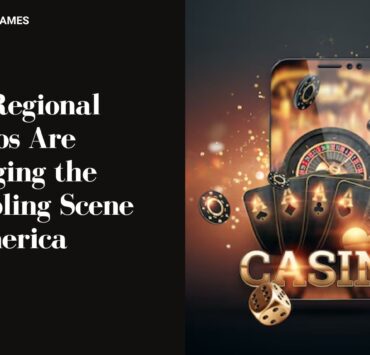Andrew is a lover of all things tech. He enjoys…
The gaming world is no stranger to technological innovation. From jaw-dropping graphics to the rise of virtual reality, these advancements keep pushing the limits of what’s possible. Now, another innovation is in the spotlight—altcoins or alternative cryptocurrencies. These digital currencies are weaving their way into gaming and iGaming, promising faster payments, decentralized economies, and new ways to play and earn. But are altcoins just another flashy trend, or do they pose hidden risks that could impact players and investors? Let’s take a closer look.
Table of Contents
ToggleCrypto Casino and In-Game Economies: A New Era
Altcoins are quickly changing the way online video games and iGaming platforms operate. From crypto online casinos to blockchain-based video games, digital currencies are enabling seamless, borderless transactions and even introducing entirely new economic systems. But with every innovation comes a question—are these currencies a breakthrough, or do they come with baggage?

For example, crypto casino platforms have gained traction in iGaming by leveraging the privacy and security of blockchain technology. Players can deposit, wager, and withdraw using altcoins like Ethereum, Dogecoin, and Solana. Since cryptocurrencies bypass banks, transactions are faster, cheaper, and often anonymous, an attractive feature for players in countries with restrictive gambling regulations.
Traditional video games are also embracing altcoins. Titles like “Axie Infinity” and “Decentraland” have built virtual economies where players earn and trade tokens with real-world value. This has blurred the line between entertainment and investing, drawing in both casual gamers and profit-seeking speculators.
The Upsides of Altcoins in Gaming
Altcoins offer several benefits for gaming and iGaming enthusiasts. First, they make payments fast and affordable. Unlike bank transfers, which can be slow and costly, cryptocurrencies process payments quickly, often with lower fees. In online gambling, where players expect instant deposits and withdrawals, this is a major advantage.
Another benefit is security. Blockchain transactions are transparent and almost impossible to tamper with, reducing the risk of fraud. In iGaming, where trust is critical, this adds a layer of confidence. Smart contracts also automate payouts, making transactions more reliable.
For gamers, altcoins have introduced the concept of “play-to-earn.” Players can earn tokens during gameplay and convert them into real money, turning gaming into a potential income stream. This model has opened doors for players to monetize their skills, making games more than just a hobby.
The Risks and Challenges
Despite the positives, altcoins come with their fair share of challenges. One of the biggest concerns is volatility. Cryptocurrency prices can swing wildly, sometimes within hours. Players holding tokens might see their value drop unexpectedly, leading to financial losses.

Another issue is regulation or its lack thereof. Laws surrounding cryptocurrencies vary widely across countries, creating uncertainty for players and operators. Without clear rules, the risks of scams, fraud, and sudden platform shutdowns increase.
Security, while strong in the blockchain itself, is another weak point in the larger ecosystem. Hacks targeting wallets, exchanges, and even gaming platforms have cost users millions. For those new to crypto, navigating these risks can be daunting.
Where Are We Headed?
Altcoins are showing no signs of slowing down. Their rise and popularity are fueled by trends like decentralized finance (DeFi) and non-fungible tokens (NFTs). NFTs, in particular, have changed how players view ownership in games. Gamers can now buy, sell, and trade unique virtual items, fueling interest in blockchain-based titles.
Crypto casinos are also evolving to cater to tech-savvy players. Many platforms now support multiple altcoins and use provably fair algorithms, which let players verify the fairness of outcomes. This focus on transparency is helping build trust in the industry.
Mainstream gaming companies are starting to collaborate with blockchain developers, adding altcoins and NFTs to their games. As these technologies become more user-friendly, adoption will likely accelerate, pushing gaming into a new era.
Andrew is a lover of all things tech. He enjoys spending his time tinkering with gadgets and computers, and he can often be found discussing the latest advancements in technology with his friends. In addition to his love of all things tech, Andrew is also an avid Chess player, and he likes to blog about his thoughts on various subjects. He is a witty writer, and his blog posts are always enjoyable to read.






